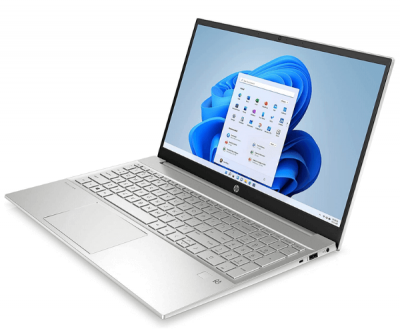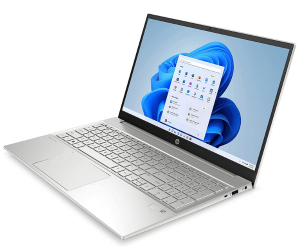Private internet use at work – what is allowed?
Private Internet use at work is a recurring topic in companies. Many employees use the Internet for private purposes during working hours. However, this can lead to conflicts with the employer, because private internet use can affect the working atmosphere and reduce productivity. In this article, we will take a closer look at the different aspects of personal Internet use at work.

Private internet use at work – what is allowed?
Private Internet use at work is a recurring topic in companies. Many employees use the Internet for private purposes during working hours. However, this can lead to conflicts with the employer, because private internet use can affect the working atmosphere and reduce productivity. In this article, we will take a closer look at the different aspects of personal Internet use at work.

The dilemma of private Internet use at work
The dilemma of private Internet use at work
Private Internet use at work is a widespread phenomenon in the modern working world. However, it presents a dilemma that affects both employers and employees. The challenge is to find a balance between employees’ needs for flexibility and the company’s demands for productivity and security.
- On the one hand, the Internet enables employees to flexibly arrange their working hours. For example, you can do private matters, such as banking or doctor’s appointments, during breaks, or build in brief distraction phases by surfing on social media platforms. This can help reduce stress and increase job satisfaction.
- On the other hand, private internet use at work also entails risks and challenges. It can lead to a reduction in productivity when employees spend too much time on non-work related activities. In addition, private use of the Internet can also entail security risks, for example by accessing unsafe websites or downloading malicious software.
In view of this dilemma, employers need to develop a meaningful Internet Use Policy that meets the needs of both employees, as well as ensuring the productivity and security of the company. Such a guideline should set clear limits, but at the same time allow a certain amount of leeway for private internet use. In addition, the introduction of such policies should be accompanied by appropriate training and education to educate employees about the potential risks of personal Internet use in the workplace and the importance of responsible use.
Finally, it is important that organizations have the appropriate technology and systems in place to monitor and enforce compliance with their Internet Use Policy. This includes the ability to quickly identify potential security threats and respond to them.
Private Internet use at work is a widespread phenomenon in the modern working world. However, it presents a dilemma that affects both employers and employees. The challenge is to find a balance between employees’ needs for flexibility and the company’s demands for productivity and security.
- On the one hand, the Internet enables employees to flexibly arrange their working hours. For example, you can do private matters, such as banking or doctor’s appointments, during breaks, or build in brief distraction phases by surfing on social media platforms. This can help reduce stress and increase job satisfaction.
- On the other hand, private internet use at work also entails risks and challenges. It can lead to a reduction in productivity when employees spend too much time on non-work related activities. In addition, private use of the Internet can also entail security risks, for example by accessing unsafe websites or downloading malicious software.
In view of this dilemma, employers need to develop a meaningful Internet Use Policy that meets the needs of both employees, as well as ensuring the productivity and security of the company. Such a guideline should set clear limits, but at the same time allow a certain amount of leeway for private internet use. In addition, the introduction of such policies should be accompanied by appropriate training and education to educate employees about the potential risks of personal Internet use in the workplace and the importance of responsible use.
Finally, it is important that organizations have the appropriate technology and systems in place to monitor and enforce compliance with their Internet Use Policy. This includes the ability to quickly identify potential security threats and respond to them.
Potential for conflict: The employer encounters privacy
Potential for conflict: The employer encounters privacy
Private Internet use at work can lead to conflicts between employers and employees, especially when it affects the employee’s privacy. These conflicts often arise from differing expectations and perceptions about the appropriate use of internet and technology during work hours. Employers may be concerned that private Internet use will affect productivity and potentially pose security risks to the company. To mitigate these risks, some employers use technology to monitor Internet usage in the workplace. You can monitor internet traffic, restrict access to certain websites or even check the content of emails.
On the other hand, workers often feel the need or desire to access the Internet for private purposes during working hours. You can see this as a form of flexibility or work-life balance. It can also improve well-being and job satisfaction, which in turn increases productivity.
When the conflict arises
The conflict arises when the employer’s monitoring of internet usage is perceived as interference with the employee’s privacy. Employees may feel that their personal information, communications and activities are being monitored and collected without their knowledge or consent.
To reduce this potential for conflict, it’s important that employers communicate clearly and transparently about their policy on internet use in the workplace. They should make it clear what constitutes fair use, what activities are being monitored, and why these actions are necessary. Workers should also have the opportunity to voice their concerns and be involved in shaping the policies.
In addition, employers must ensure that their monitoring practices comply with legal data protection regulations. They must carefully consider what type of monitoring is appropriate and proportionate, and they should always choose the minimum measure necessary to protect their legitimate interests.
Ultimately, the goal is to find a fair balance that respects the interests of the company as well as the privacy and rights of employees. This requires open communication, mutual understanding and respect for different perspectives and needs.
Private Internet use at work can lead to conflicts between employers and employees, especially when it affects the employee’s privacy. These conflicts often arise from differing expectations and perceptions about the appropriate use of internet and technology during work hours. Employers may be concerned that private Internet use will affect productivity and potentially pose security risks to the company. To mitigate these risks, some employers use technology to monitor Internet usage in the workplace. You can monitor internet traffic, restrict access to certain websites or even check the content of emails.
On the other hand, workers often feel the need or desire to access the Internet for private purposes during working hours. You can see this as a form of flexibility or work-life balance. It can also improve well-being and job satisfaction, which in turn increases productivity.
When the conflict arises
The conflict arises when the employer’s monitoring of internet usage is perceived as interference with the employee’s privacy. Employees may feel that their personal information, communications and activities are being monitored and collected without their knowledge or consent.
To reduce this potential for conflict, it’s important that employers communicate clearly and transparently about their policy on internet use in the workplace. They should make it clear what constitutes fair use, what activities are being monitored, and why these actions are necessary. Workers should also have the opportunity to voice their concerns and be involved in shaping the policies.
In addition, employers must ensure that their monitoring practices comply with legal data protection regulations. They must carefully consider what type of monitoring is appropriate and proportionate, and they should always choose the minimum measure necessary to protect their legitimate interests.
Ultimately, the goal is to find a fair balance that respects the interests of the company as well as the privacy and rights of employees. This requires open communication, mutual understanding and respect for different perspectives and needs.
Risks and opportunities: Dealing with private internet use
Risks and opportunities: Dealing with private internet use
Private Internet use at work harbors both risks and opportunities. Dealing responsibly with this topic can help to find the balance between the two.
Effective management of personal Internet use in the workplace requires clear policies and open communication. Employees should know exactly what is allowed and what is not. At the same time, employers must respect the privacy of their employees and ensure that they act in accordance with legal data protection regulations. A balanced and well thought-out strategy can help to minimize the risks and take advantage of the opportunities of private Internet use at work.
Private Internet use at work harbors both risks and opportunities. Dealing responsibly with this topic can help to find the balance between the two.
Effective management of personal Internet use in the workplace requires clear policies and open communication. Employees should know exactly what is allowed and what is not. At the same time, employers must respect the privacy of their employees and ensure that they act in accordance with legal data protection regulations. A balanced and well thought-out strategy can help to minimize the risks and take advantage of the opportunities of private Internet use at work.
The legal situation
The legal situation
In Germany, the legal situation is quite complex and by no means clear or trend-setting. How personal Internet use is managed in the workplace depends on a number of factors, including company’s specific policies and employee approval.
As a general rule, the employer has the right to regulate the use of his facilities, including the internet. This can also include the restriction or prohibition of private Internet use. However, it is important that such policies are clearly communicated and that employees give their consent. Because dissatisfied employees disturb the overall company peace and are rather counterproductive. If the employer allows private use of the Internet, further legal questions arise, in particular in connection with the monitoring of employees. According to German law, complete monitoring of Internet use is generally not permitted. Limited surveillance may be permitted where necessary to maintain operational security or to investigate cases of abuse. However, the principle of proportionality must always be observed.
In addition, according to the General Data Protection Regulation (GDPR), employers are obliged to protect the personal data of their to protect employees. This means that they are only allowed to collect and process information about employees’ internet use under certain conditions, and they must take appropriate measures to protect this data. Ultimately, it is also important that employers have a clear and well thought-out internet usage policy that defines employees’ rights and obligations in relation to internet use.
In Germany, the legal situation is quite complex and by no means clear or trend-setting. How personal Internet use is managed in the workplace depends on a number of factors, including company’s specific policies and employee approval.
As a general rule, the employer has the right to regulate the use of his facilities, including the internet. This can also include the restriction or prohibition of private Internet use. However, it is important that such policies are clearly communicated and that employees give their consent. Because dissatisfied employees disturb the overall company peace and are rather counterproductive. If the employer allows private use of the Internet, further legal questions arise, in particular in connection with the monitoring of employees. According to German law, complete monitoring of Internet use is generally not permitted. Limited surveillance may be permitted where necessary to maintain operational security or to investigate cases of abuse. However, the principle of proportionality must always be observed.
In addition, according to the General Data Protection Regulation (GDPR), employers are obliged to protect the personal data of their to protect employees. This means that they are only allowed to collect and process information about employees’ internet use under certain conditions, and they must take appropriate measures to protect this data. Ultimately, it is also important that employers have a clear and well thought-out internet usage policy that defines employees’ rights and obligations in relation to internet use.
How to ideally organize private Internet use at work
How to ideally organize private Internet use at work
Personal Internet use in the workplace can be challenging, but with a thoughtful approach, an ideal framework can be created. Here are some suggestions on how to come up with a reasonable design for this question:
Personal Internet use in the workplace can be challenging, but with a thoughtful approach, an ideal framework can be created. Here are some suggestions on how to come up with a reasonable design for this question:
Popular Posts:
Integrate and use ChatGPT in Excel – is that possible?
ChatGPT is more than just a simple chatbot. Learn how it can revolutionize how you work with Excel by translating formulas, creating VBA macros, and even promising future integration with Office.
Create Out of Office Notice in Outlook
To create an Out of Office message in Microsoft Outlook - Office 365, and start relaxing on vacation
The best backup solutions for your data
Keep your data safe and secure! Discover our best backup solutions for your valuable information now. Because safety is the be-all and end-all - and we have the perfect tips.
Internet Addiction – A serious look at a growing problem
Internet addiction is just as serious an illness as alcohol or drug addiction. Just that this is a mental illness. In this article we want to go into the phenomenon in more detail and provide assistance.
Main keyboard shortcuts in Windows 10/11
Entdecken Sie die wichtigsten Shortcuts in Windows 11, um Ihre Produktivität zu steigern. Von allgemeinen Befehlen bis hin zu spezifischen Fenster-Management- und System-Shortcuts, lernen Sie, wie Sie mit diesen Tastenkombinationen effizienter arbeiten können.
Encrypt USB stick – These options are available
Protecting sensitive data is essential. Encrypting USB sticks provides an extra layer of security. Whether it's built-in software, operating system features, third-party software, or hardware encryption, there are numerous options.
Popular Posts:
Integrate and use ChatGPT in Excel – is that possible?
ChatGPT is more than just a simple chatbot. Learn how it can revolutionize how you work with Excel by translating formulas, creating VBA macros, and even promising future integration with Office.
Create Out of Office Notice in Outlook
To create an Out of Office message in Microsoft Outlook - Office 365, and start relaxing on vacation
The best backup solutions for your data
Keep your data safe and secure! Discover our best backup solutions for your valuable information now. Because safety is the be-all and end-all - and we have the perfect tips.
Internet Addiction – A serious look at a growing problem
Internet addiction is just as serious an illness as alcohol or drug addiction. Just that this is a mental illness. In this article we want to go into the phenomenon in more detail and provide assistance.
Main keyboard shortcuts in Windows 10/11
Entdecken Sie die wichtigsten Shortcuts in Windows 11, um Ihre Produktivität zu steigern. Von allgemeinen Befehlen bis hin zu spezifischen Fenster-Management- und System-Shortcuts, lernen Sie, wie Sie mit diesen Tastenkombinationen effizienter arbeiten können.
Encrypt USB stick – These options are available
Protecting sensitive data is essential. Encrypting USB sticks provides an extra layer of security. Whether it's built-in software, operating system features, third-party software, or hardware encryption, there are numerous options.












































